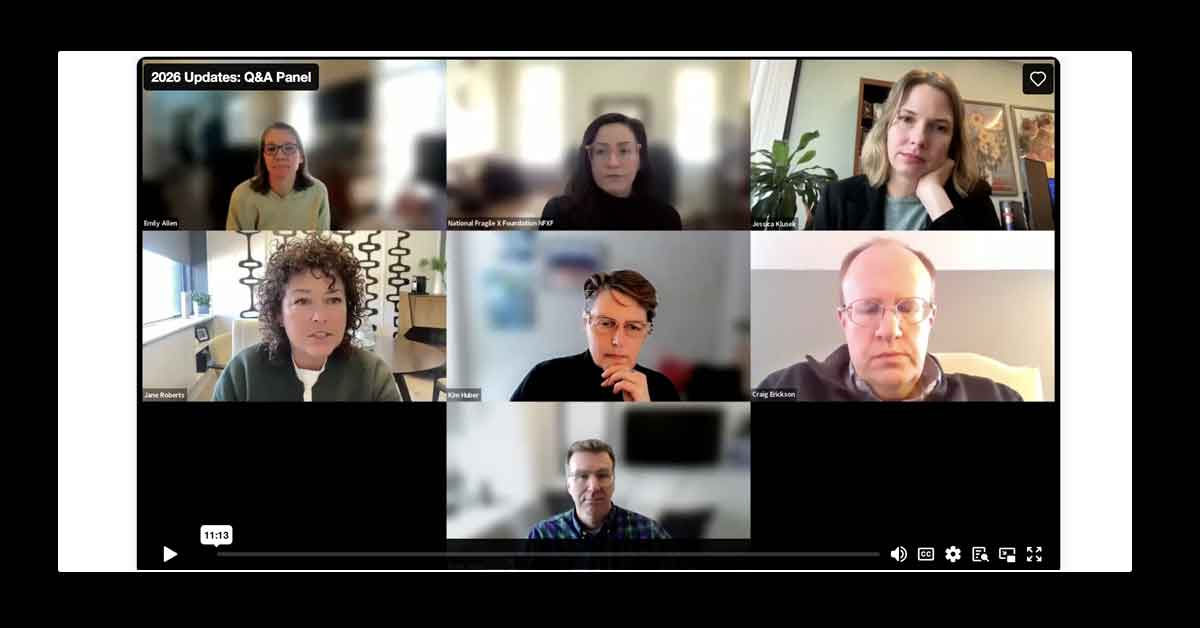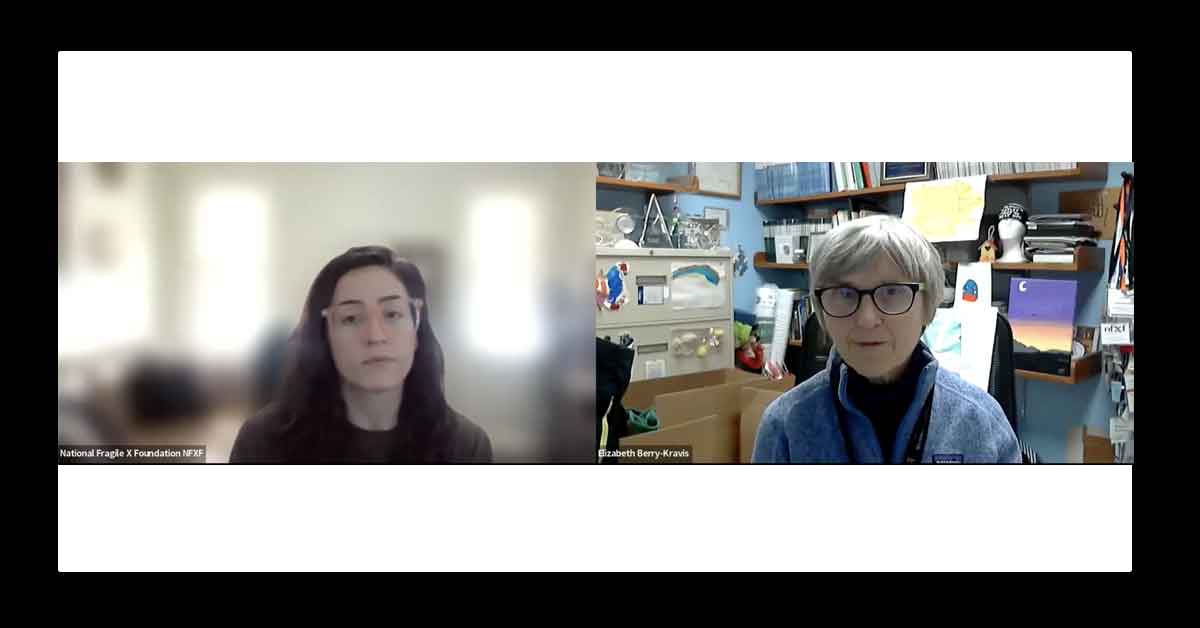About the Presenters

Elizabeth Berry-Kravis
Elizabeth Berry-Kravis, MD, PhD, established the Fragile X Clinic and Research Program at Rush University Medical Center in 1992. She studies Fragile X syndrome medical issues, epilepsy, and psychopharmacology and provides care to over 700 patients with FXS. She has been a leader in translational research, including the development of outcome measures and biomarkers, natural history studies, newborn screening, and particularly clinical trials of new targeted treatments.
Dr. Berry-Kravis’s laboratory studies the cellular roles of the Fragile X protein (FMRP), its relationship to phenotypes, and the optimization of genetic testing methods. She is a longstanding member of the NFXF Scientific and Clinical Advisory Committee, and Clinical Trials Committee, and is the principal investigator of the CDC-funded FORWARD-MARCH natural history project for Fragile X.
Dr. Berry-Kravis attended the University of Notre Dame for her undergraduate studies and the University of Chicago for her doctoral degrees (MD and PhD) and training in pediatric neurology.

Amie Milunovich
Amie joined the NFXF in 2015. She holds a bachelor’s degree in family and consumer science and is a SOCRA-certified clinical research professional (CCRP). Amie has over 15 years of experience working in clinical research. She enjoys Bikram yoga, painting, cooking, and spending time with family and friends.

Robby Miller
Robby has been affiliated with the NFXF since 1999 and has spent over 50 years helping children with special needs, their families and the professionals who work with them. He first became a part of the Fragile X community when close friends had two children with Fragile X syndrome. Robby is particularly interested in how families learn about, access, and receive meaningful care and services. This interest led to his co-founding the Fragile X Clinical & Research Consortium. In his spare time, you’ll find Robby singing and playing rhythm guitar in a band with his long-time musical partners.

Georgina Peacock
Dr. Georgina Peacock is the director of the CDC’s Immunization Services Division in the National Center for Immunization and Respiratory Diseases. Dr. Peacock oversees support of immunization programs, provider and public education, and evaluation and research.
Dr. Peacock is dedicated to developing and implementing public health programs that support children and adults in underserved populations. Dr. Peacock served as the chief medical officer for the CDC at the Georgia Department of Public Health, helping the state’s vaccination efforts.

Jennifer Kaminski
Dr. Jennifer Kaminski is the Lead Health Scientist at the CDC’s Policy Analysis and Engagement Office.




